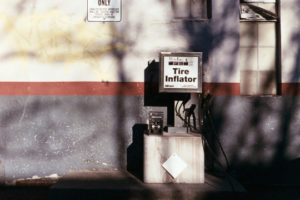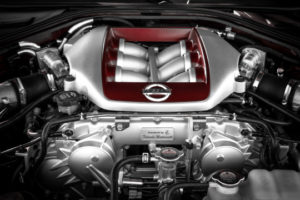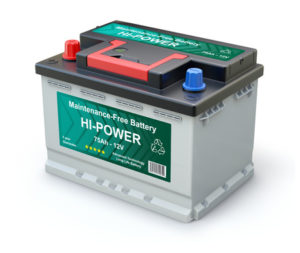Ask car owners what they fill their tires with, and you’ll probably get a litany on why nitrogen vs air is much better than the other. Some people claim one is better than the other, and they swear their life on it. Some claim one option is much safer than the other. But let’s separate the chaff from the wheat, shall we? Let’s try to find out the truth behind using nitrogen or good ‘ol air in your tires. Lastly, let’s try to find out if there is indeed any reason why you should choose nitrogen over air. Ready? Let’s start filling!
Why should you even bother?
Before we go and discuss what to fill your tires with, let’s try to talk about why you should be inflating your car’s tires. Well, you need your tires to be inflated to be able to drive the thing, but we’re talking about proper inflation. If you are wondering why we are talking about this now, then just hold your breath. We’ll get there.
Any car owner knows that if you want a smoother drive with better fuel economy, then you should always inflate your tires properly. Not only that, a properly inflated tire helps in ensuring your tire wears evenly and slowly. Lastly, a properly inflated tire provides a much safer drive.
How special is nitrogen in tires?
 Since time immemorial, car owners have filled their tires with regular air. There’s no real reason why you would think to fill it up with anything else. But some “specialty” vehicles like airplanes and race cars use nitrogen to fill their tires.
Since time immemorial, car owners have filled their tires with regular air. There’s no real reason why you would think to fill it up with anything else. But some “specialty” vehicles like airplanes and race cars use nitrogen to fill their tires.
Why use nitrogen vs air? It’s due to several things that can be attributed to the natural properties of nitrogen. However, do these unique attributes mean anything to Michael, who owns a 2003 Honda Accord? Let’s talk about the many claims and the natural world implications of these claims to your average car owner.
Claim #1: Nitrogen does not leak as fast as compressed air and will help keep your tire pressure at a safe level for a longer time.
- Truth: No regular car tire is ever “leakproof,” and tiny molecules of air (or nitrogen, for that matter) still escape over time. The amount you lose is almost close to negligible (in the event you notice you are losing more pressure than usual with zero punctures or valve damage, then you need to replace your tire), and it does not matter if you use compressed air or nitrogen. Also, when you do get a valve malfunction or puncture, compressed air and nitrogen escape at a similar rate.
Claim #2: Nitrogen does not get affected by temperature changes and will be a better choice in keeping consistent tire pressure regardless of climate.
- Truth: While it is true that nitrogen inflated tires can maintain pressure longer than regular compressed air-filled tires, you can only feel the difference when the change is severe. This is the reason why airplanes use nitrogen in their tires, as the temperature can change significantly between landing and takeoff. You can’t expect to experience these dramatic temperature changes in normal driving conditions, so this quality has little to no benefit to a regular car owner.
Claim #3: Using nitrogen will make your tire maintenance-free as you do not need to check the pressure as much.
- Truth: Nothing is truly “maintenance-free” if you want a safe ride. Whether you put nitrogen or compressed air in your tires, it is still good practice to check the pressure from time to time to check for slow leaks.
Claim #4: Compressed air is full of oxygen and moisture that can damage your tire’s inner linings, which can damage your wheel.
- Truth: Most modern compressed air systems you can find in tire shops already have moisture separators in place that remove water vapor from the air supply. Not only does this protect the tires and wheels of their customers, but also their very own tools. Also, the chances of your tires suffering damage solely from oxygen and moisture are rare if not unheard of.
So when should I use nitrogen vs air?
 To be clear, there’s nothing wrong with choosing nitrogen over compressed air, but there’s nothing too special either. You can always fill your tires with nitrogen, but be wary that places that offer such services can be sparse in certain areas. This means that if you need to refill in an unfamiliar location, then you might have a hard time doing so.
To be clear, there’s nothing wrong with choosing nitrogen over compressed air, but there’s nothing too special either. You can always fill your tires with nitrogen, but be wary that places that offer such services can be sparse in certain areas. This means that if you need to refill in an unfamiliar location, then you might have a hard time doing so.
Compressed air is still the best if you are looking for a no-nonsense solution. There are no studies showing nitrogen to be superior to compressed air, so plain air is just fine if you don’t feel like changing.
Fast And Friendly Auto Repair At T3 Atlanta
After filling up your tires with nitrogen or compressed air from your favorite tire shop, you can then head down to T3 Atlanta to get everything else checked up. We are one of the most trusted auto repair shops in the Atlanta Metro Area. We service Lexus, Infiniti, Nissan, and Toyota vehicles of all shapes and sizes. Give us a call today, and let us handle all your auto repair needs.
 To understand why you might need a brake bleed or flush, you first need to have a basic understanding about how your brake system works.
To understand why you might need a brake bleed or flush, you first need to have a basic understanding about how your brake system works. Now that you know how your brake system works and how brake fluid is a part of it, what does a brake bleed or brake flush have to do with it?
Now that you know how your brake system works and how brake fluid is a part of it, what does a brake bleed or brake flush have to do with it? A brake bleed is often all your vehicle needs to top off the fluids in your brake system and make sure that your brakes respond like they should when you press the pedal.
A brake bleed is often all your vehicle needs to top off the fluids in your brake system and make sure that your brakes respond like they should when you press the pedal. Tune ups as we know them today are completely different than they were when the term was first coined. A tune up in an early car was routine maintenance work on the vehicle’s ignition system to ensure that ignition and fueling worked in perfect tandem with each other.
Tune ups as we know them today are completely different than they were when the term was first coined. A tune up in an early car was routine maintenance work on the vehicle’s ignition system to ensure that ignition and fueling worked in perfect tandem with each other. Every modern vehicle comes with what’s known as a ‘maintenance schedule’. This schedule consists of routine work that is required after a certain amount of miles have been driven. A modern tune up is another way to refer to this routine maintenance.
Every modern vehicle comes with what’s known as a ‘maintenance schedule’. This schedule consists of routine work that is required after a certain amount of miles have been driven. A modern tune up is another way to refer to this routine maintenance. Back in the day, old vehicles might need a tune up every 10,000 miles or so. Newer vehicles are designed to last longer and may go 20 – 30,000 miles between maintenance items. Depending on the condition of your vehicle and driving habits, you may need to get a car tune up earlier than this.
Back in the day, old vehicles might need a tune up every 10,000 miles or so. Newer vehicles are designed to last longer and may go 20 – 30,000 miles between maintenance items. Depending on the condition of your vehicle and driving habits, you may need to get a car tune up earlier than this. Like all stories, there’s a reason that letting your car come to operating temperature became common knowledge.
Like all stories, there’s a reason that letting your car come to operating temperature became common knowledge. Modern vehicles are equipped with complex electronic systems that monitor how much air and fuel can enter the combustion chambers and make adjustments as needed. These sensors are as fast as they are accurate, and they ensure that your engine gets the correct amount of fuel regardless of whether you immediately put your car into ‘drive’ or not.
Modern vehicles are equipped with complex electronic systems that monitor how much air and fuel can enter the combustion chambers and make adjustments as needed. These sensors are as fast as they are accurate, and they ensure that your engine gets the correct amount of fuel regardless of whether you immediately put your car into ‘drive’ or not.
 The paint on the outside of your vehicle is very susceptible to sun damage, so it’s important to keep your vehicle out of sunlight as much as possible, especially during the sunny summer months. The easiest way to do this is park your car in a garage or carport when possible.
The paint on the outside of your vehicle is very susceptible to sun damage, so it’s important to keep your vehicle out of sunlight as much as possible, especially during the sunny summer months. The easiest way to do this is park your car in a garage or carport when possible. It’s important to wash and wax your car regardless of the time of year, but it’s especially important during the summer. Over time, sunlight can fade the paint on the exterior of your vehicle. Wax protects your paint from damage, dirt and debris, as well as sap bird droppings that result from parking under the shade.
It’s important to wash and wax your car regardless of the time of year, but it’s especially important during the summer. Over time, sunlight can fade the paint on the exterior of your vehicle. Wax protects your paint from damage, dirt and debris, as well as sap bird droppings that result from parking under the shade. You can generally treat hard-top convertibles the same as other vehicles when it comes to protecting them from the summer sun. If you own a soft-top convertible, though, it’s important to
You can generally treat hard-top convertibles the same as other vehicles when it comes to protecting them from the summer sun. If you own a soft-top convertible, though, it’s important to  The interior of your car can be affected by sun damage, too. Damage to these components can range from bleaching to cracking or warping. It may not impact the performance of your vehicle, but can affect its appearance and resale value.
The interior of your car can be affected by sun damage, too. Damage to these components can range from bleaching to cracking or warping. It may not impact the performance of your vehicle, but can affect its appearance and resale value. It’s important to remember that your tires need protection, too. It’s natural for your tires to deteriorate with use and time, but regular exposure to UV rays can accelerate that process.
It’s important to remember that your tires need protection, too. It’s natural for your tires to deteriorate with use and time, but regular exposure to UV rays can accelerate that process. The general advice goes that you should change your oil every 3,000 miles. In fact, the exact frequency
The general advice goes that you should change your oil every 3,000 miles. In fact, the exact frequency  Your belts and hoses can be easy to forget about, but it’s important to check them when your car hasn’t been driven for a while. These vehicle components naturally degrade over time, but disuse can accelerate this degradation. For example, rubber hoses can dry out and crack when fluids aren’t regularly flowing through them.
Your belts and hoses can be easy to forget about, but it’s important to check them when your car hasn’t been driven for a while. These vehicle components naturally degrade over time, but disuse can accelerate this degradation. For example, rubber hoses can dry out and crack when fluids aren’t regularly flowing through them. Your car battery relies on the engine being run to recharge it. When your car isn’t being driven, the battery doesn’t have the chance to regain any power lost while your car has been sitting idle. A car battery tester can help you quickly identify how much charge your battery currently has, helping you eliminate the chance of getting stranded on the road.
Your car battery relies on the engine being run to recharge it. When your car isn’t being driven, the battery doesn’t have the chance to regain any power lost while your car has been sitting idle. A car battery tester can help you quickly identify how much charge your battery currently has, helping you eliminate the chance of getting stranded on the road. Your tires likely won’t need a rotation if your car hasn’t been driven much, but it’s still important to make sure that they are properly inflated since your tires naturally lose air over time. This can impact the tread wear when you do take your vehicle out.
Your tires likely won’t need a rotation if your car hasn’t been driven much, but it’s still important to make sure that they are properly inflated since your tires naturally lose air over time. This can impact the tread wear when you do take your vehicle out. A less frequently considered part of car maintenance during the pandemic has to do with ‘new residents’. When your car is sitting idle and unused, it suddenly becomes prime real estate for certain rodents, such as mice and chipmunks. This is especially true for cars that are parked outdoors.
A less frequently considered part of car maintenance during the pandemic has to do with ‘new residents’. When your car is sitting idle and unused, it suddenly becomes prime real estate for certain rodents, such as mice and chipmunks. This is especially true for cars that are parked outdoors. Most cars on the road these days are front-wheel drive vehicles. This type of car features a drivetrain that powers the two wheels at the front of the vehicle. There are several benefits of this type of drive train, including:
Most cars on the road these days are front-wheel drive vehicles. This type of car features a drivetrain that powers the two wheels at the front of the vehicle. There are several benefits of this type of drive train, including: In a rear-wheel drive vehicle, the engine is positioned at the front of the vehicle and provides power to the wheels at the back of the car or truck. There are several benefits to a rear-wheel drive vehicle, including:
In a rear-wheel drive vehicle, the engine is positioned at the front of the vehicle and provides power to the wheels at the back of the car or truck. There are several benefits to a rear-wheel drive vehicle, including: As the name suggests, 4-wheel drive (4WD) vehicles feature a drivetrain that is designed to deliver power to all four wheels. The vehicle may be designed to have a full or part-time system; part-time offers the additional choice for the driver to switch between rear and 4WD depending on their needs. There are several advantages of 4WD vehicles, including:
As the name suggests, 4-wheel drive (4WD) vehicles feature a drivetrain that is designed to deliver power to all four wheels. The vehicle may be designed to have a full or part-time system; part-time offers the additional choice for the driver to switch between rear and 4WD depending on their needs. There are several advantages of 4WD vehicles, including: Although all-wheel and 4-wheel drive types may sound like different terms for the same thing, they work a little differently and are distinct enough to be considered their own category.
Although all-wheel and 4-wheel drive types may sound like different terms for the same thing, they work a little differently and are distinct enough to be considered their own category. Regardless of how much or how little you drive your vehicle, car owners are eventually going to need to drop money on maintenance and repairs. After all, keeping your car on its maintenance schedule will prolong the lifespan of your vehicle and help prevent you from getting stranded on the side of the road.
Regardless of how much or how little you drive your vehicle, car owners are eventually going to need to drop money on maintenance and repairs. After all, keeping your car on its maintenance schedule will prolong the lifespan of your vehicle and help prevent you from getting stranded on the side of the road. Maybe you’re about to welcome a new member to your family and your two-seater won’t cut it anymore. Maybe you’re about to pick up off-roading as a new hobby and your minivan just isn’t up for the task. Perhaps you’ve decided to start driving for a ride-share service and you need a vehicle that’s more suited to transport passengers around town.
Maybe you’re about to welcome a new member to your family and your two-seater won’t cut it anymore. Maybe you’re about to pick up off-roading as a new hobby and your minivan just isn’t up for the task. Perhaps you’ve decided to start driving for a ride-share service and you need a vehicle that’s more suited to transport passengers around town. A change in employment – for better or for worse – can significantly impact whether it’s time to replace your car. A promotion or raise may mean you can comfortably afford that car which has been on your wish list, while a job loss may mean you need to trade your vehicle in for something more affordable.
A change in employment – for better or for worse – can significantly impact whether it’s time to replace your car. A promotion or raise may mean you can comfortably afford that car which has been on your wish list, while a job loss may mean you need to trade your vehicle in for something more affordable. Drive-ins don’t just operate in perfect weather; they’ll be open rain or shine. All the same, it’s a good idea to look at the weather report before you go and plan accordingly.
Drive-ins don’t just operate in perfect weather; they’ll be open rain or shine. All the same, it’s a good idea to look at the weather report before you go and plan accordingly. You can get concessions at the drive-in, but to save costs and also enjoy your favorite treats, you can also bring your own. Since you can’t have your car’s cabin lights on during the show, it’s best to pack food and drink that you can easily grab in the dark.
You can get concessions at the drive-in, but to save costs and also enjoy your favorite treats, you can also bring your own. Since you can’t have your car’s cabin lights on during the show, it’s best to pack food and drink that you can easily grab in the dark. You and your fellow drivers are at the drive-in for one purpose: to enjoy a movie. Since you’re in your car and not in a theatre, it’s important to practice drive-in etiquette and not distract others from their viewing experience.
You and your fellow drivers are at the drive-in for one purpose: to enjoy a movie. Since you’re in your car and not in a theatre, it’s important to practice drive-in etiquette and not distract others from their viewing experience. The reasoning behind this myth is that there are fewer impurities in premium gas, so your car can run cleaner and more efficiently with a tank full of the expensive stuff.
The reasoning behind this myth is that there are fewer impurities in premium gas, so your car can run cleaner and more efficiently with a tank full of the expensive stuff. The train of thinking here is that you already have all the tools you need on hand to wash your car – assuming you have dish or laundry soap, of course. You save yourself cash and a trip to the auto supply store, all while getting the same results as a specially-formulated car washing solution, right?
The train of thinking here is that you already have all the tools you need on hand to wash your car – assuming you have dish or laundry soap, of course. You save yourself cash and a trip to the auto supply store, all while getting the same results as a specially-formulated car washing solution, right? Whether your car’s air conditioning wastes gas
Whether your car’s air conditioning wastes gas The idea behind this myth is that gasoline, like other liquids, expands in warmer temperatures so pumping warm gas in the middle of the day means you’re getting less – literally – bang for your buck.
The idea behind this myth is that gasoline, like other liquids, expands in warmer temperatures so pumping warm gas in the middle of the day means you’re getting less – literally – bang for your buck. One of the most common car maintenance myths is that you need to get all of your tires replaced at the same time. This isn’t necessarily true. For front and rear-wheel drive vehicles, you can replace one, two, or even three tires at once. Just make sure they’re the same type as the remaining tires on your vehicle.
One of the most common car maintenance myths is that you need to get all of your tires replaced at the same time. This isn’t necessarily true. For front and rear-wheel drive vehicles, you can replace one, two, or even three tires at once. Just make sure they’re the same type as the remaining tires on your vehicle.








